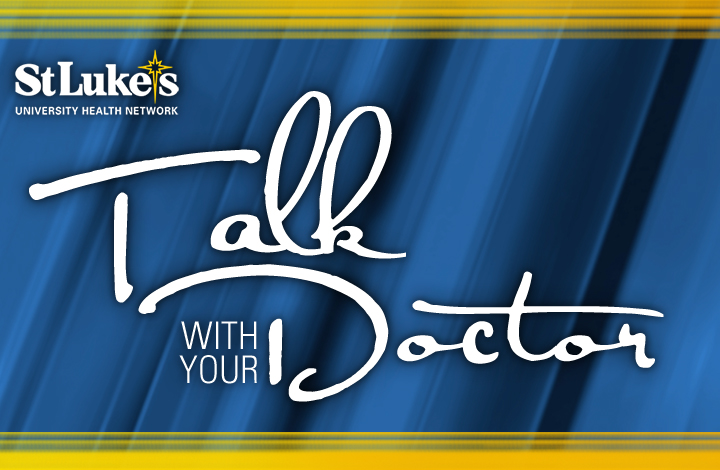New St Lukes Miners Rural Residency Program a First in Pennsylvania
August 15, 2018

Only RTT Program in Pennsylvania
St. Luke’s University Health Network (SLUHN) recently launched its new Family Medicine Residency Program at St. Luke's Miners Campus that will have a significant positive impact on health care in this and other rural areas, by providing post-graduate training for physicians wanting to practice family care in a rural setting.
Out of the 93 rurally located family medicine residency programs in the United States, the St. Luke’s Family Medicine Residency Program - Miners is one of just 34 nationwide – and the only one in Pennsylvania – that are accredited as integrated rural training tracks (RTT).
“The majority of Americans live in rural areas, but the majority of physicians practice in urban areas,” explains Gregory Dobash, MD, of St. Luke's Ashland Family Practice, who is the site director for the RTT, which will be based out of St. Luke’s Hometown Rural Health Center in Tamaqua.“There are a lot of nuances to providing care in a rural setting that require unique training and additional skills. We are excited to be able to offer this specialized program right here in Schuylkill County.” .
“There is a nationwide physician shortage and our area – and rural areas in general – are especially hard hit. We are training the next generation of rural family physicians and we are encouraging our residents to enter rural practice. The goal of the program is to train and retain future physicians to serve our communities here.”
The RTT will be an integrated program with St. Luke’s Family Medicine Residency – Warren, located in Phillipsburg, NJ and under the direction of program director Thomas McGinley, MD. The three-year program will have two residents in each year and welcomed its first class this July.The residents will spend three months in the first year in Tamaqua, and nine months in Tamaqua in both the second and third years.
The RTT training site, St. Luke’s Hometown Rural Health Center, was recently honored by the National Rural Health Association with its 2018 Outstanding Rural Health Organization award.
“St. Luke’s Family Medicine Residency Program - Miners will undoubtedly improve access to and the quality of health care for patients in areas like Tamaqua and Coaldale,” says J.P. Orlando, Ed.D, St. Luke’s Associate Chief Academic Officer. “It's a more intimate type of health care experience. Residents get to know the people in their community.”
Dr. Dobash says that the program specifically trains its residents for the rigors of rural practice as they will be taught how to survive and thrive in an environment that requires more self-sufficiency. The program will focus on preventive care, community medicine and the basics of family medicine, such as diabetes, hyperlipidemia, hypertension, COPD, and heart disease.
“The rural family medicine resident can expect to practice at the outer limits of his or her comfort level and specialty training,” he says.
Adds Orlando: “Residents in this program will also receive intense and comprehensive training in assessing, stabilizing and transferring patients that require a higher level of care.”
Randall Longenecker, executive director of the RTT Collaborative, served as a consultant during the accreditation process. He provided input into the design of the program, building on the assets of the rural communities in Coaldale and Tamaqua, and reviewing the application for accreditation.
“Since this is a unique residency training program requiring coordination and integration across at least two primary locations in Tamaqua and Phillipsburg, New Jersey, it required some creative design and collaboration across different entities within the St. Luke’s system,” says Longenecker, who is also professor of family medicine and assistant dean of rural and underserved programs at Ohio University Heritage College of Osteopathic Medicine.
He says that accreditation as a separate RTT affords the track recognition among prospective residents focused on preparation for practice in small-town settings.
“It’s ‘training in place’ as we like to say,” Longenecker adds. “Training in a rural context is much more relevant to eventual practice in that setting and is generally two to three times more likely than an urban program to produce graduates who go on to rural practice.”
Accreditation means that the program has been initially approved by the Accreditation Council for Graduate Medical Education (ACGME) to train family physicians who, after three years of training, will be eligible for American Board of Family Medicine certification as family physicians who can practice anywhere in the United States.
“Fortunately,” Longenecker says, “residents frequently stay where they are trained, with 56% of graduates locating within 50 miles of their training program. Having an RTT is an opportunity for a rural community to ‘grow its own.’ ”
“It’s part of St. Luke’s mission to ensure that the community’s health needs are supported for many years to come,” states Dr. Dobash. “And this is a big step to not only address the physician shortage issue, but to ensure that patients in our region receive the best, most appropriate care for their unique needs.”
Media Contact:
Sam Kennedy, Corporate Communications Director, 484-526-4134, samuel.kennedy@sluhn.org
About St. Luke’s
Founded in 1872, St. Luke’s University Health Network (SLUHN) is a fully integrated, regional, non-profit network of 14,000 employees providing services at 10 hospitals and over 300 outpatient sites. With annual net revenue of $1.9 billion, the Network’s service area includes 10 counties: Lehigh, Northampton, Berks, Bucks, Carbon, Montgomery, Monroe and Schuylkill counties in Pennsylvania and Warren and Hunterdon counties in New Jersey. Dedicated to advancing medical education, St. Luke’s is the preeminent teaching hospital in central-eastern Pennsylvania. In partnership with Temple University, St. Luke’s created the region’s first and only regional medical school campus. It also operates the nation’s longest continuously operating School of Nursing, established in 1884, and 28 fully accredited graduate medical educational programs with 226 residents and fellows. St. Luke’s is the only health care system in central-eastern Pennsylvania to earn Medicare’s five-star rating (the highest) for quality, efficiency and patient satisfaction. St. Luke’s has earned the 100 Top Major Teaching Hospital designation from IBM Watson Health (formerly Truven Health Analytics) repeatedly – six times total and four years in a row including 2018. It has also been cited by IBM Watson Health as a 50 Top Cardiovascular Program. Utilizing the EPIC electronic medical record (EMR) system for both inpatient and outpatient services, the Network is a multi-year recipient of the Most Wired award recognizing the breadth of the SLUHN’s information technology applications such as telehealth, online scheduling and online pricing information. St. Luke’s is also recognized as one of the state’s lowest cost providers.
Read More NewsLatest News


April 22, 2025
Weight-Loss Surgery Leads to Pregnancy


April 17, 2025